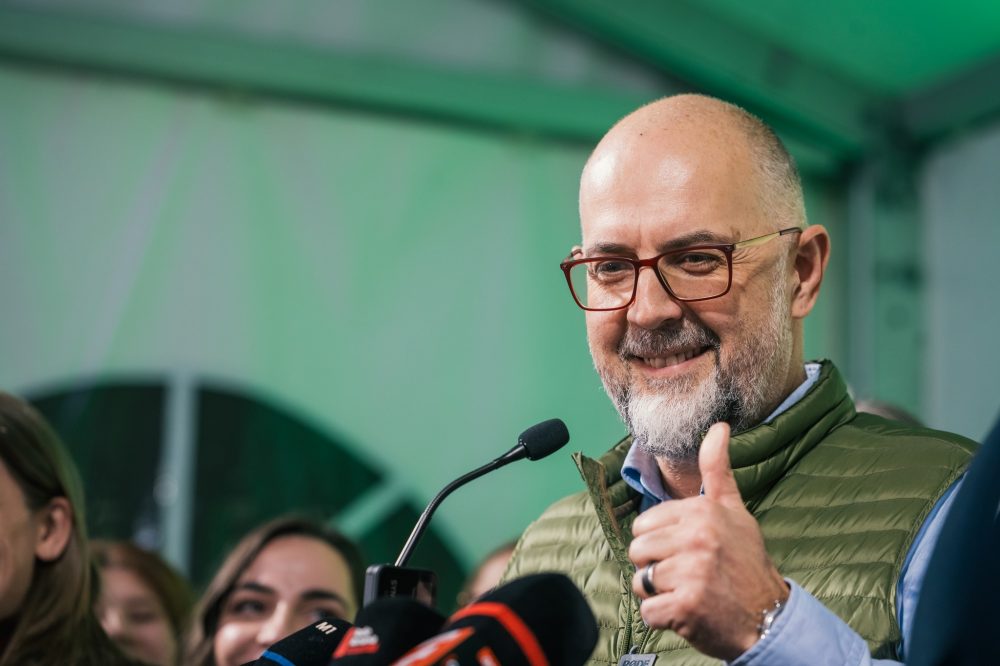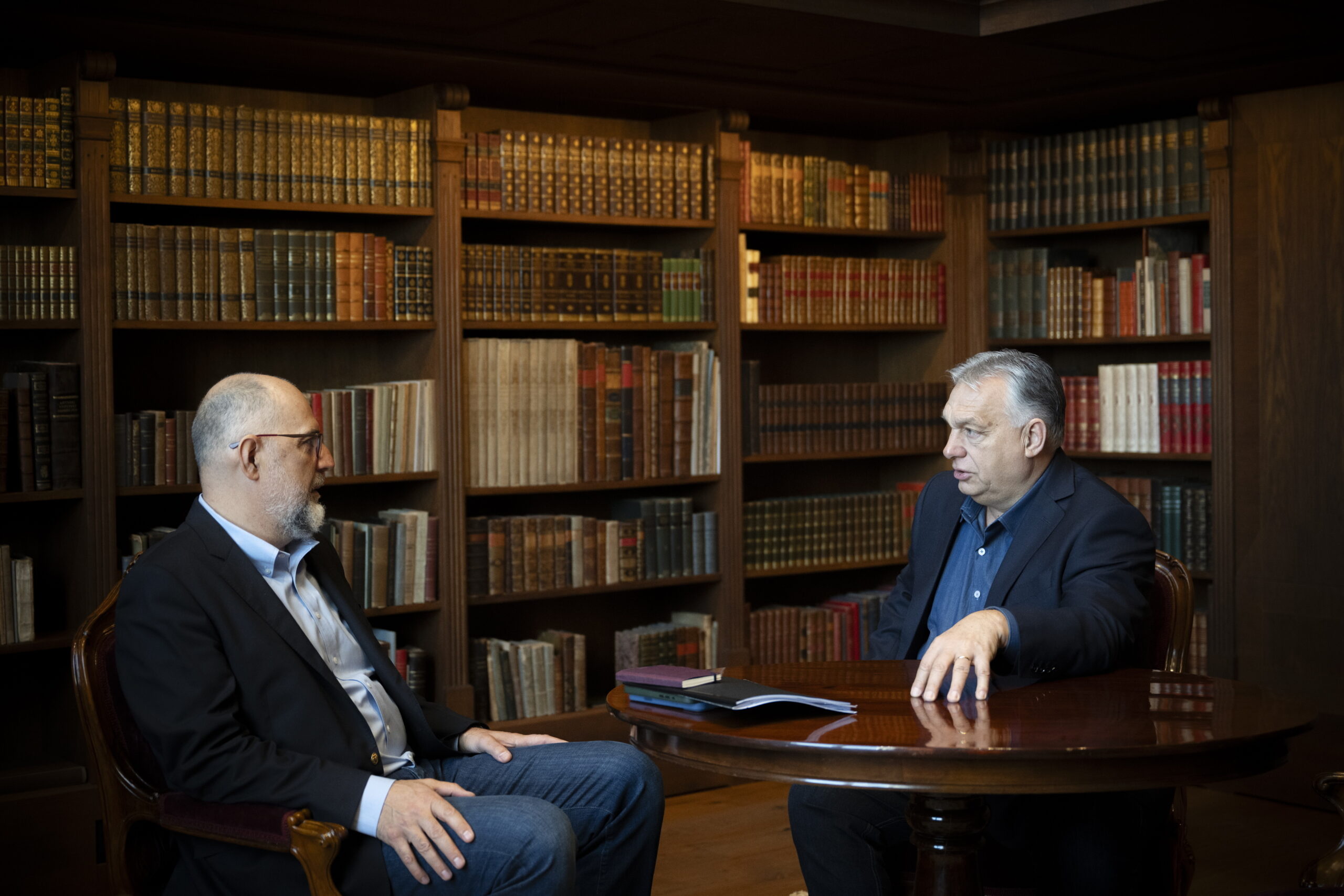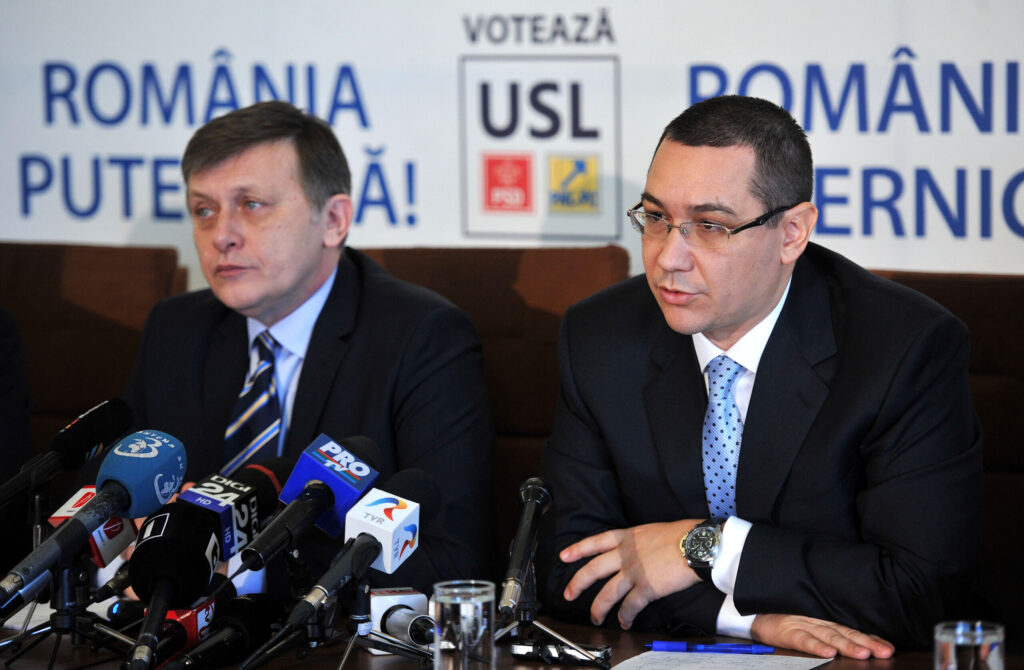
Compromises with the nationalist parties are unthinkable, and alliances across ideological divides may be necessary.Continue reading

Independent presidential candidate Victor Ponta is a resilient character of Romanian politics, who is considered to have more than just an outside chance in the race for the Cotroceni Palace. He recently made a name for himself when he accused Viktor Orbán of exercising “too much power in Romania.”
Viktor Orbán, the longest-serving head of government in the EU, is as much a target of hostility as he is – usually secretly – admired. Friend and foe agree that he “polarizes” like no other, which is considered a mortal sin in view of the crowding in the political “middle.” However, the often criticized polarization no longer takes place along the “left-right” axis, but in a political force field whose field lines were partly drawn by the Hungarian Prime Minister and are called, for instance, “sovereignty,” “economic neutrality,” and “patriotic politics.”

Former allies (2014), now rivals: Victor Ponta (R) and Crin Antonescu. Photo: Wikipedia
One person who has been drawn into the maelstrom of this force field is the former Prime Minister of Romania, Victor Ponta (52), who announced his candidacy for the repeat presidential elections at the beginning of March. The latest polls give the “enfant terrible” of the Bucharest political scene a meagre 14% of the vote, with the best-placed candidate, the ultra-nationalist AUR leader George Simion, claiming 30%, the ruling party candidate Crin Antonescu 23%, the independent Nicușor Dan 21%, and – lagging far behind – the progressive candidate, Elena Lasconi 8%. However, Orbán’s namesake, whose original surname is said to have been Ponte (Italian for “bridge”), wants to build bridges to several political camps in order to fish in the murky waters of the Romanian electorate.
The youngest head of a Bucharest executive at the time (2012-2015) and leader of the Social Democratic Party (2010-2015) maintained excellent relations with his former political companions even after leaving the party,
at least rhetorically committing himself to the much-vaunted “social justice,” and thus targeting the losers of Romania’s turbo-capitalism.
This pool of voters largely overlaps with that of the unsuccessful presidential candidate Călin Georgescu, whose nationalist supporters were taken over one-to-one by George Simion. Crin Antonescu, whose candidacy is only half-heartedly supported by the Social Democratic Party, the party with the most votes, can at best count on wishing “tight lines,” as his fishing luck in this ideological pool will be modest. Not so the shrewd populist Ponta, who, with his Balkan rogue charm, is well received by voters from the deepest provinces, who are suspicious of the wooden-looking history teacher Antonescu.
However, in a deeply insecure Romania that is currently seeking its place between Washington, Brussels, and Moscow, Ponta is mainly courting the favor of the “sovereigntists,” who in Romania have nothing to do with Orbán’s party family. Among the “sovereigntist” parties of Bucharest observance, only the AUR (Alliance for the Union of Romanians) has membership of a parliamentary group in the European Parliament. Its party leader, the most promising candidate for the office of head of state, is vice president of the Conservatives and Reformists, but is not considered socially acceptable outside his nationalist electoral base. This is where Ponta comes in, sometimes donning Trump’s red baseball cap, sometimes putting on a statesmanlike air. If need be, the quick-change artist would also don Georgescu’s national costume, with which the admirer of the Romanian fascists took the hearts of nationalists by storm.
How can you fish in the patriotic river, the nationalist (in Romania: “sovereigntist”) pond, and the progressive pool at the same time? Ponta’s most recent statements reveal a clever strategy, at least with regard to the first two ideological camps. The independent presidential candidate said in a Digi 24 broadcast on Wednesday that he wants “a patriotic government, as national as possible,” and would “never” accept a member of the RMDSZ (Democratic Alliance of Hungarians in Romania) as finance minister or as a member of the Supreme Council of National Defense (CSAT). On the other hand, he admitted that “many of the gestures” made by Prime Minister Orbán were right for Hungary. But then came another twist from the political opportunist:
But I do not want and do not like Viktor Orbán to be too powerful in Romania. I do not believe that he wants the good of Romania.”
In Romania, it is a foregone conclusion that Hunor Kelemen, the leader of the RMDSZ, a party that is a member of the European People’s Party (EPP; like the Hungarian Alliance in Slovakia), will implement the policies of the Patriots founder. “I do not like it when Hunor Kelemen announces that he will topple the government if someone (meaning Crin Antonescu, imo) does not become president,” the presidential candidate complained, falsifying the wording and content of a thoroughly realistic assessment of Kelemen. When asked about the fact that, according to his statement, he would change the government if he became president, Ponta said: “But I am not getting anything from Viktor Orbán, neither hints nor suggestions.” The RMDSZ parliamentary group leader in the lower house responded immediately with a piqued reaction, getting personal in Bucharest style: “I saw that Ponta said on TV that Orbán does not give him orders. Dottore, when you scratched on Orbán’s door to get him to see you, it was as if you were not sick!” Obviously, head of government Marcel Ciolacu was not the only Bucharest politician who wanted to take advantage of the Hungarian Prime Minister’s good connections to the Oval Office.
Ponta admonished his strongest competitor in the race for the office of head of state as follows: “George Simion, listen to me carefully. You are not Călin Georgescu. You do not have his education, studies, experience, values, and faith in God. You cannot be president and you know it.” With this public rebuke (it was a Facebook post), Ponta killed two birds with one stone. He flattered the ‘éminence grise’ of the nationalists, who pulls the strings behind the political scenes, and played up to Georgescu’s numerous supporters, who accuse George Simion, his deputy against his will, of being overly cautious in the European china shop.
One cannot help but notice that the European shockwaves triggered by the geopolitical repositioning of the United States have hit Romanians the hardest. Hungary’s eastern neighbor has become a hub of conflicting interests despite, or perhaps because of, its strategic importance. This hub is likely to move sometimes in a westerly direction, sometimes in an easterly direction.
Despite recent opposition riots, Budapest looks like a haven of political stability when viewed from Bucharest.
No wonder that politicians there do not lose sight of Viktor Orbán. Victor Ponta’s ambivalent relationship with the Hungarian doyen of European politics is not only due to the country’s usual opportunism. Perhaps, after years dominated by gray EU bureaucrats, strong personalities are once again in demand who do not manage stagnation, but dare to implement reforms.
Featured image: MTI/Miniszterelnöki Sajtóiroda/Benko Vivien Cher